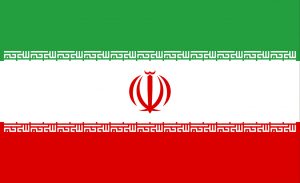On November 2, 2018, the Department of Treasury’s Office of Foreign Assets Control (“OFAC”) issued a final rule effective Monday, November 5, 2018 that amends the Iranian Transactions and Sanctions Regulations and reinstates sanctions on Iran that had been suspended during implementation of the Joint Comprehensive Plan of Action (“JCPOA”). On May 8 of this year, the Trump Administration had announced that the United States would withdraw from the JCPOA, but provided for 90-day and 180-day wind-down periods for specified activities involving Iran.
The 90-day wind down period ended effective August 6, 2018, and the U.S. government took steps to re-implement sanctions via Executive Order 13846. This included the application of secondary sanctions to the purchase or acquisition of U.S. dollar banknotes by the Government of Iran, certain trade in gold or precious metals, certain trade in graphite, raw or semi-finished metals such as aluminum, steel, coal and software for integrating industrial processes, transactions relating to Iranian rials, transactions relating to issuance of Iranian sovereign debt, and sanctions relating to Iran’s automotive sector. (See our previous post here).
The latest announcement addresses the end of the 180-day wind down period and implements certain additional aspects of Executive Order 13846.
- The amendments include deleting the “EO 13599 List” of individuals and entities who were removed from the SDN List pursuant to the JCPOA, but still were considered “Government of Iran” parties or Iranian financial institutions subject to blocking by U.S. persons pursuant to EO 13599. The Federal Register notice states that OFAC will relist “as appropriate” certain individuals and entities who were on the EO 13599 List. It is therefore unclear at this time whether all persons who were on the EO 13599 List will be re-added to the SDN List.
- The Iranian Transactions and Sanctions Regulations will authorize sanctions against a person upon a determination that:
- On or after August 7, 2018, the person has materially assisted, sponsored, or provided financial, material, or technological support for, or goods or services in support of, the purchase or acquisition of U.S. bank notes or precious metals by the Government of Iran; or
- On or after November 5, 2018, the person has materially assisted, sponsored, or provided financial, material, or technological support for, or goods or services in support of, the National Iranian Oil Company (NIOC), Naftiran Intertrade Company (NICO), or the Central Bank of Iran.
- OFAC amended a pre-existing general license allowing U.S. persons to sell real property in Iran provided it was acquired before the individual became a US person or was inherited from persons in Iran. The general license has been expanded to include personal property subject to the same conditions.
During a telecom briefing on Friday, Secretary of State Michael Pompeo mentioned that the administration decided to grant “temporary allotments” to eight jurisdictions to continue purchasing Iranian oil. Some reports indicate that South Korea, Japan, India, and Turkey are among the countries receiving such waiver. Although Mr. Pompeo did not say how long the waivers will be in place, he mentioned that the purpose of the waivers is to give countries a few “weeks longer to wind down.”
We expect that the actual re-designations of persons and entities to the SDN List will be published on Monday along with guidance and FAQs. We will follow up next week with further details.
 Global Trade & Sanctions Law
Global Trade & Sanctions Law


